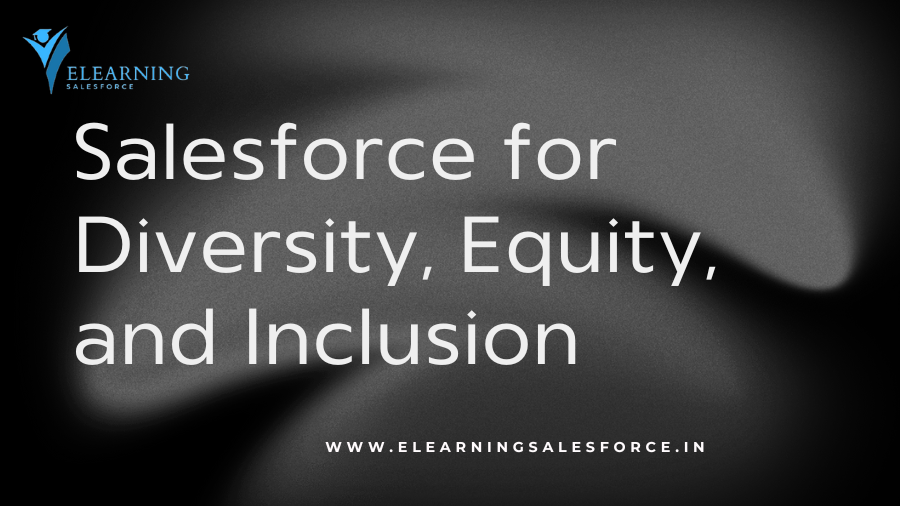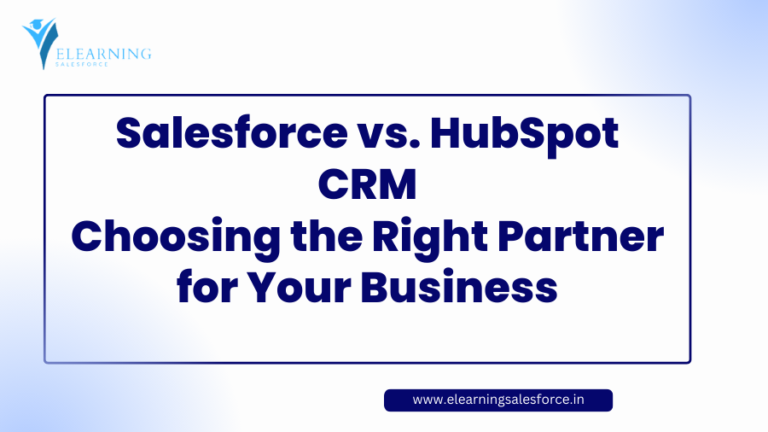Salesforce for Diversity, Equity, and Inclusion: In an era where diversity, equity, and inclusion (DEI) are paramount to organizational success, Salesforce emerges as a powerful ally in fostering these values. Beyond being a customer relationship management (CRM) platform, Salesforce plays a pivotal role in shaping a workplace that celebrates diversity and ensures equal opportunities for all.
The Role of Salesforce in Fostering DEI
Salesforce sets the stage for DEI initiatives by embodying these principles within its own organizational structure. The platform is designed not just for business efficiency but with a conscious effort to promote diversity and inclusion.
Leveraging Data for Inclusive Decision-Making
One of the standout features of Salesforce is its robust analytics capabilities. Organizations can harness the power of data to make informed decisions regarding their DEI strategies. By analyzing trends and patterns, companies can identify areas for improvement and track their progress over time.
Customization for Diverse Workforces
Every organization is unique, and so are its DEI needs. Salesforce’s flexibility allows companies to tailor the platform to accommodate diverse workforces. Whether it’s adjusting reporting structures or customizing user interfaces, the platform ensures inclusivity at every level.
Employee Engagement and Training
Salesforce goes beyond being a tool; it’s a platform for fostering employee engagement and growth. Through interactive features and dedicated training programs, companies can use Salesforce to create a culture of continuous learning, enhancing employees’ understanding of DEI principles.
DEI Metrics and Tracking
Setting measurable goals is crucial in any DEI strategy. Salesforce provides robust tools for tracking metrics related to diversity, equity, and inclusion. This transparency allows organizations to assess their performance and make data-driven adjustments.
Addressing Unconscious Bias
Unconscious bias can hinder DEI efforts. Salesforce recognizes this challenge and offers tools to identify and address bias within its applications. This proactive approach contributes to a more inclusive and equitable workplace.
Success Stories
Numerous companies have successfully implemented Salesforce for their DEI initiatives. These success stories serve as inspiration, showcasing the positive impact that a thoughtful integration of technology can have on workplace culture.
Overcoming Challenges
Implementing DEI strategies, even with a powerful tool like Salesforce, comes with challenges. From resistance to change to data privacy concerns, addressing these challenges head-on is essential for successful integration.
Future Trends in DEI Technology
As technology evolves, so does the landscape of DEI. Salesforce is at the forefront of this evolution, with ongoing developments that promise to further enhance its capabilities in promoting diversity, equity, and inclusion.
Industry Impact
Salesforce’s commitment to DEI doesn’t just influence its own organization but has a ripple effect across industries. The platform encourages other companies to prioritize these values, fostering positive change on a broader scale.
Integration with HR Processes
DEI is not a standalone initiative; it must be seamlessly integrated into HR processes. Salesforce facilitates this integration, enhancing various HR functions to ensure that DEI is woven into every aspect of the employee lifecycle.
Building a Culture of Inclusivity
Salesforce is not just a tool for organizational change; it’s a catalyst for cultural transformation. By promoting inclusivity beyond technology, Salesforce contributes to the development of a workplace culture where diversity is not just accepted but celebrated.
Challenges and Opportunities in Remote Work
The rise of remote work poses both challenges and opportunities for DEI. Salesforce addresses these concerns, providing solutions to ensure that inclusivity remains a priority even in virtual work environments.
Conclusion
In conclusion, Salesforce stands as a beacon for organizations committed to fostering diversity, equity, and inclusion. Its array of features, coupled with a genuine commitment to these principles, makes it a transformative force in the journey towards more inclusive workplaces.
Frequently Asked Questions (FAQs)
- How does Salesforce contribute to diversity in the workplace?
- Salesforce fosters diversity by embodying these values within its organizational structure and providing tools for DEI initiatives.
- Can Salesforce be customized for specific DEI needs?
- Yes, Salesforce’s flexibility allows organizations to tailor the platform to meet their unique diversity, equity, and inclusion requirements.
- What metrics can be tracked using Salesforce for DEI?
- Salesforce enables tracking of metrics such as workforce diversity, equitable hiring practices, and inclusion initiatives.
- How does Salesforce address unconscious bias in the workplace?
- Salesforce provides tools to identify and address unconscious bias within its applications, contributing to a more inclusive workplace.
- Is Salesforce effective in promoting DEI in remote work environments?
- Yes, Salesforce offers solutions to address DEI concerns in remote work, ensuring inclusivity remains a priority in virtual work settings.



